1. Thorough Property Assessment
Gauge the overall condition of the property to identify immediate and potential issues.
Get exclusive insights, tips, and updates on home renovations and facility maintenance from Myles Properties.
Posted on: 2025-11-13
By: Samuel T. Masters
As you embark on your renovation journey, have you considered how crucial a well-planned budget is to your success? A budget isn't merely a list of expenses; it's a strategic tool that paves the way for a smooth and efficient project. In this guide, you'll discover the essential elements you need to ensure your residential rehab is both financially sound and rewarding.
This visual outlines the key steps and considerations for creating a successful residential rehab budget.
Gauge the overall condition of the property to identify immediate and potential issues.
Prioritize projects and plan enhancements based on assessment and budget availability.
Categorize expenses: major costs, labor, materials, and permits.
Continuously monitor expenditures and adjust the budget as the project progresses.
Obtain several bids to ensure competitive pricing and value for money.
Allocate funds for unexpected costs, typically 10-20% of the total budget.
When it comes to residential rehab, having a solid budget is your best friend! Think of it as the foundation of a house—without it, everything else could crumble. A rehab budget is essentially an outline of all the expected costs involved in renovating a property. It’s crucial because, without proper planning, you may end up overspending or facing unexpected financial hurdles. Trust me, I've seen this happen far too often in my 25 years in the business!
Establishing a clear budget helps you prioritize projects, allocate funds effectively, and keep your renovation on track. It’s not just about crunching numbers; it's about making informed decisions that align with your vision for the space. I always tell clients that a well-prepared budget not only saves money but also time and stress down the line.
A rehab budget outlines the costs associated with your renovation project, allowing you to plan for expenses related to materials, labor, permits, and unexpected contingencies. It’s essential because it serves as a roadmap for your project, helping you avoid common pitfalls such as overspending or running out of funds mid-project. Here are a few reasons why a rehab budget is vital:
By having a clear budget, you're not just throwing money at problems—you're strategically planning how to turn your investment into a dream home!
Effective budget planning involves several key components that work together to help you manage costs successfully. These include:
By incorporating these components into your planning, you’re setting yourself up for a smoother renovation experience. Remember, the more detailed and organized your budget is, the easier it will be to stick to it as you move forward with your project!
It's important to understand the distinction between home renovation and residential rehab. While both involve improving a property, the focus and scope can differ significantly. Home renovations often aim to enhance aesthetics or functionality, such as updating fixtures or redoing a kitchen. On the other hand, residential rehab is typically more involved and may include:
At Myles Properties, we specialize in residential rehab, ensuring that we not only enhance the beauty of your home but also its safety and functionality. If you’re considering a rehab project, understanding these differences will help you better plan your budget and expectations! For more information on programs that support residential rehabilitation, you can refer to resources like the U.S. Department of Housing and Urban Development's program budget reports, or explore initiatives like the Tennessee Housing Development Agency's HOME Program, or the Administration for Community Living's budget overviews.
When creating your rehab budget, always include a contingency fund of at least 10-15% of your total budget. This extra cushion will help you manage unexpected expenses without derailing your project. Trust me, having this safety net can save you from significant stress later on!
Creating a successful rehab budget is a crucial step in any renovation journey. Throughout the planning process, I’ve found that understanding the ins and outs of budget creation can really set the tone for a project. Here’s a recap of the budget planning process that can help you stay organized and on track:
By following these steps, you’ll be better positioned to navigate your rehab project with confidence and clarity. The key takeaway is that preparation is everything!
As a proud owner of Myles Properties and General Contractors LLC, I can attest that a well-structured rehab budget is the backbone of any successful renovation. It's not just about crunching numbers; it's about envisioning the future of your space while being realistic about costs. Remember, your budget should reflect both your dreams and your financial reality—finding that balance is key!
Don’t forget, flexibility is also crucial. While it’s important to stick to your budget, being open to changes and adjustments will help you adapt to any surprises along the way. After all, renovations can be unpredictable!
In today’s digital age, there are a variety of tools available that can simplify your budgeting process. Utilizing online budgeting software can help you track expenses, plan for future costs, and stay organized. Here’s a list of some popular resources:
These tools can save you both time and stress, allowing you to focus on the fun parts of your renovation!
Knowing when to bring in the professionals can save you countless hours and potentially costly mistakes. If you’re feeling overwhelmed or unsure, consider reaching out for assistance. Here are some situations where it makes sense to engage with experts:
At Myles Properties, we’re always here to offer our expertise and help guide you through the process. Don’t hesitate to reach out if you need a hand!
If you’re considering tackling some aspects of your rehab project yourself, that’s fantastic! DIY renovations can be both rewarding and cost-effective. However, it’s essential to strike a balance between cost and quality. Here are some tips to keep in mind:
Remember, quality workmanship pays off in the long run! If you need guidance or support, Myles Properties is just a call away. Let’s work together to make your vision a reality!
Here is a quick recap of the important points discussed in the article:
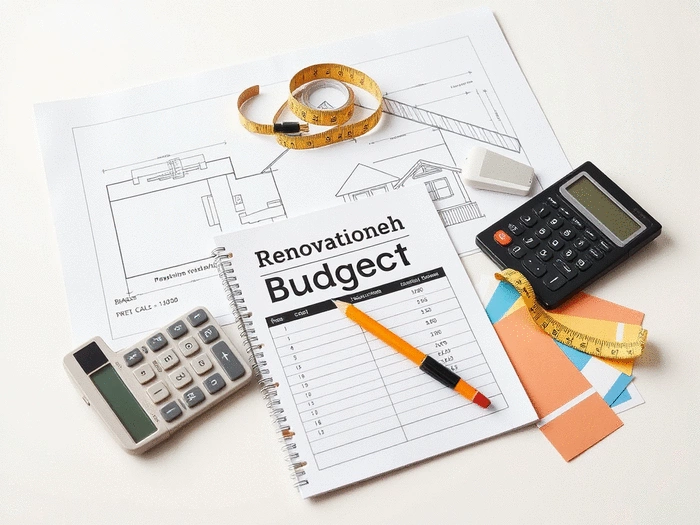
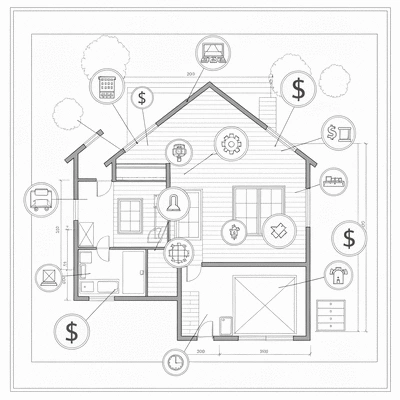

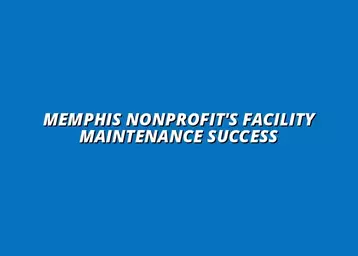 Facility Maintenance for Nonprofits: Enhancing Mission and Community TiesFacility maintenance is a c
Facility Maintenance for Nonprofits: Enhancing Mission and Community TiesFacility maintenance is a c
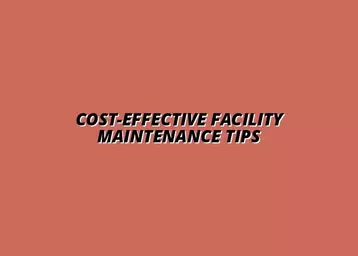 What if a small change in your facility maintenance routine could lead to significant savings and im
What if a small change in your facility maintenance routine could lead to significant savings and im
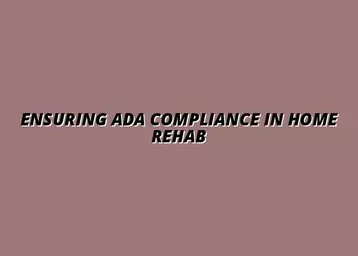 Have you considered how ADA compliance can transform not just your home, but the lives of those who
Have you considered how ADA compliance can transform not just your home, but the lives of those who